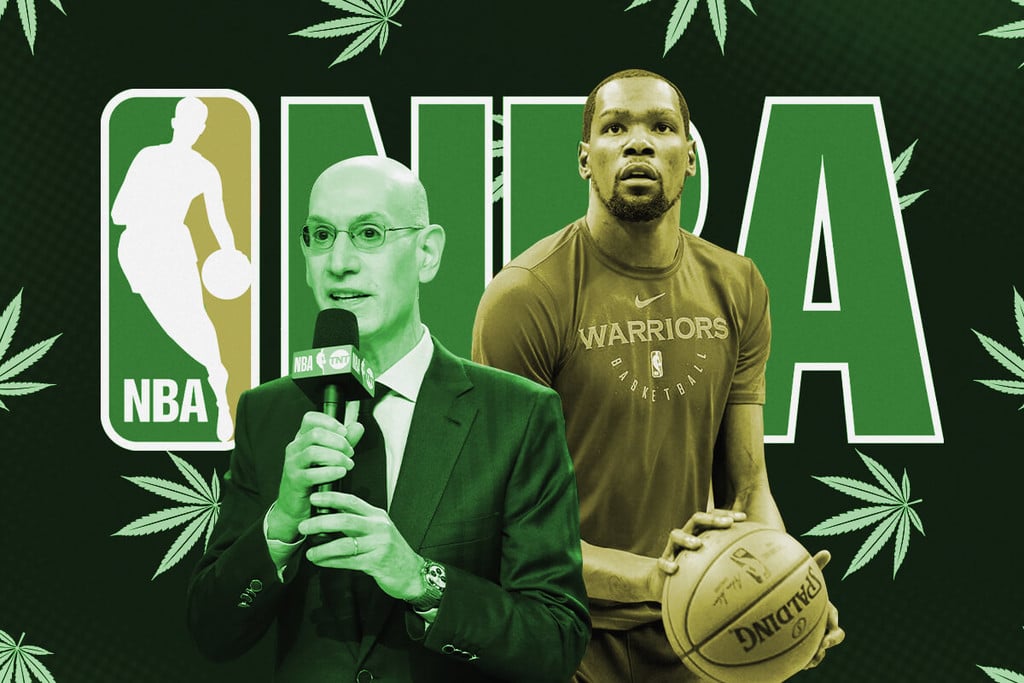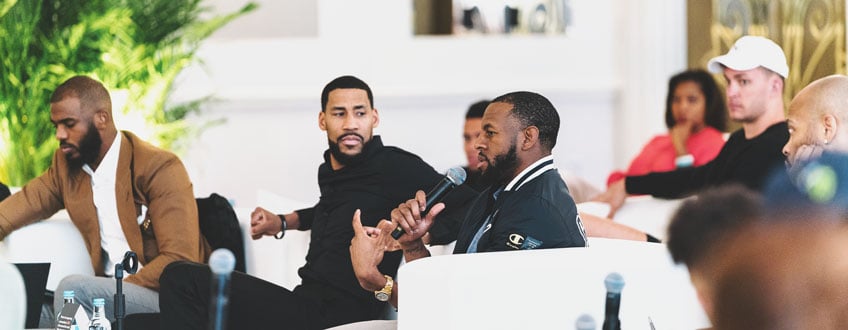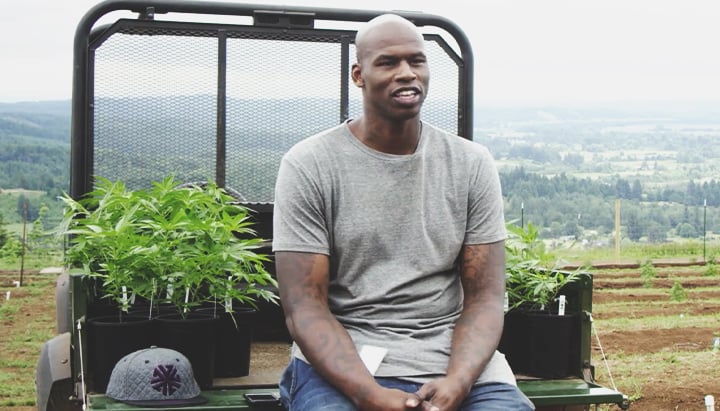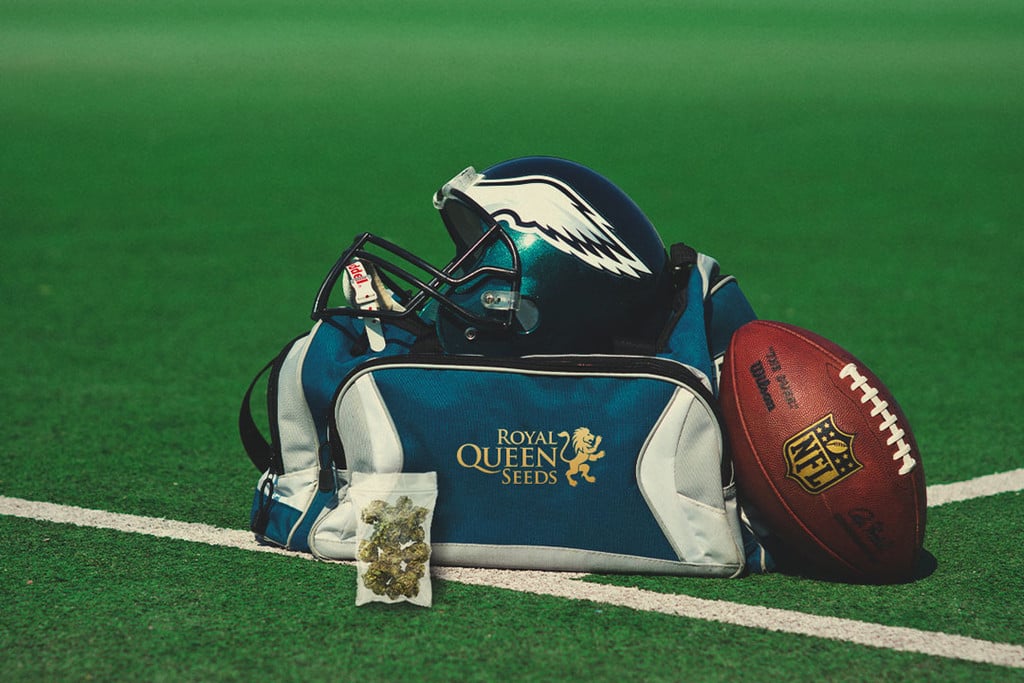.

NBA Weed Policy Update — Will Players Be Allowed to Smoke Cannabis?
In April 2023, the NBA struck a tentative labour deal that, among other conditions, promises to put an end to cannabis testing and bans for years to come. Is this the end of marijuana prohibition in the NBA? Keep reading to find out.
The NBA has struck a tentative labour deal with its players that promises to stop testing for and banning cannabis.
Contents:
News of the deal broke following negotiations for the 2023–24 season between the league and the National Basketball Players Association, which took place on April 1st. While the deal still needs to be ratified by both parties, it promises to remove cannabis from the league's drug testing programme, potentially until 2030.
This isn’t the first time the NBA has demonstrated a new, laxer approach to cannabis. It first removed cannabis testing for the 2020 Disney Bubble matches to prioritise testing for performance enhancers and high-risk drugs like cocaine and methamphetamine while minimising the risk of players catching COVID-19—a measure which was later extended across the 2021 season. The deal struck this year, however, would be the league’s first long-term approach to changing its take on weed.

NBA Greats and Cannabis — Like Peas in a Pod
The decision to stop cannabis testing and bans places the NBA among the few North American sporting leagues that have somewhat relaxed cannabis policies, including the NHL (which doesn't punish cannabis use), Major League Baseball (which removed cannabis from its list of "drugs of abuse" in 2019), and the UFC (which stopped penalising players for cannabis use in 2021). For many NBA players, the move to stop cannabis testing and bans couldn't have come soon enough.
"85 percent of the players in the [NBA] smoke, bro", says former Knicks Power Forward Al Harrington[1] in an interview with GQ. Harrington, along with other NBA greats like Allen Iverson (who has his own strain of high-THC flower) made it very clear that cannabis is a central part of life for many NBA athletes.


JR Smith also publicly spoke of how he and other NBA players used cannabis to function while playing in the 2020 Disney Bubble. "We was blowing it down in there. That was the only way you could really function in that joint", Smith famously told[2] Stephen Jackson and Matt Barnes on the All the Smoke podcast. Jackson has even publicly praised his Golden State Warriors coach Don Nelson for "being cool" with players using weed.
"Me and Baron [Davis] are coming out the locker room just screaming, excited with our last pink slip saying we could smoke for the rest of the season, and Don Nelson hauls ass down there giving us high-fives, like, ‘Yeah, we can smoke now!'", Jackson told[3] Michael Rapaport on the I Am Rapaport podcast.
Why Weed?
Recent years have given rise to dramatic shifts in the way people feel[4] about cannabis. This shift has paved the way for athletes, including NBA players, to open up about the very real ways in which cannabis helps them in their careers. High on the list is stress management.
In his interview with GQ, Al Harrington famously touted cannabis for its ability to help athletes deal with stress. "It’s a safe and alternative way to deal with shit", Harrington said.
"Yes, we are supermen. We do make a lot of money. But we have a lot of stress and shit on our plate. Constantly. So what is our vice? What can we use to get away? What’s available to us? Cannabis is recreationally available or decriminalised in 18 NBA markets. So, I pay taxes in this state, I hoop in this state, and you’re trying to tell me I can’t go to the dispensary? It makes no sense".

Besides admitting to being high on David Letterman's My Guest Needs No Introduction, Kevin Durant talked[5] about cannabis' potential to help pro athletes deal with stress and nerves. "To me, it clears the distractions out your brain a little bit, settles you down. It's like a glass of wine", Durant said.
Beyond helping them manage stress, cannabis may also be very effective at helping NBA professionals deal with physical pain. Playing up to 82 games over 6 months every year (and more if a team makes it to the finals) obviously takes its toll on the body. And that's not to mention the strict training NBA players endure, nor the contact they suffer in-game. Finally, like all pro athletes who push their bodies to their limits, NBA players are no strangers to injuries—the most common[6] in the NBA affect ligaments, tendons, muscles, and bones in the lower body, particularly the knee, ankle, and foot.
Arguably one of the biggest voices in North American sports speaking out about the healing potential of cannabis is Eugene Monroe, former Offensive Tackle at the Baltimore Ravens. After playing 7 years of American Football, Eugene has learned to live a life of pain, suffering everything from knee injuries to head trauma. Today, Monroe has started his own cannabis businesses and taken on the mission of speaking about the dangers of opioid abuse among pro athletes, and how cannabis can be a natural, safe alternative to dangerous and addictive prescription drugs.
Legalization - Spreading Like A Weed
Outside of the NBA and NFL, the UFC is also home to countless athletes who swear by cannabis as part of their training recovery routines. And outside the world of professional sports, cannabis use is growing exponentially and legalization is spreading like weed. While California led the way in 1996 with the approval of Proposition 215 (which legalized the use of medical cannabis), 21 states have since legalized cannabis in some way (or passed legislation that promises some form of future legalization), as well as Guam, the Northern Mariana Islands, the U.S. Virgin Islands, and Washington D.C.
And the legalization movement shows no signs of slowing. Research conducted by the Pew Research Centre[7] in 2022 shows that 90% of US citizens support the legalization of medical or recreational weed. Meanwhile, legislative changes in Minnesota[8], Ohio, Oklahoma, and Pennsylvania seem closer than ever before, suggesting a brighter, greener future than ever before. And as cannabis continues to be more accepted around the US and other parts of the world, will more major sports leagues have to change their policies on weed? While we don't have a crystal ball, it sure looks like cannabis is becoming ever more accessible, even for pro athletes in the spotlight.
- Allen Iverson’s Sky-High Life | GQ https://www.gq.com
- https://www.mediaite.com/sports/j-r-smith-reveals-the-nba-bubble-reeked-of-marijuana-we-was-blowing-it-down-in-there/
- Ex-NBA player Stephen Jackson says he sometimes smoked marijuana before games https://www.espn.com
- Marijuana Statistics in the US: Cannabis Use & Abuse (2023 Data Update) - CFAH https://cfah.org
- My Next Guest Needs No Introduction with David Letterman | Kevin Durant Talks Weed - YouTube https://www.youtube.com
- Epidemiology and injury trends in the National Basketball Association: Pre- and per-COVID-19 (2017–2021) | PLOS ONE https://journals.plos.org
- Overwhelming support for legal recreational or medical marijuana in U.S. | Pew Research Center https://www.pewresearch.org
- https://mjbizdaily.com/4-states-have-a-good-shot-at-legalizing-recreational-marijuana-in-2023/




































